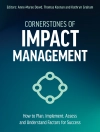This book assesses recent migration patterns in Europe, which have significantly included ‘return migration’ against the stream of East-West migration. Since the Eastern enlargement of the EU, many regions of Central and Eastern European have experienced a loss of human resources in core industries, raising concerns about social, economic and territorial cohesion in the region. The success rates of national and regional governmental policy aiming to retain or re-attract skilled workers have been variable, yet return migration has emerged as a major element of migration flows.
Bringing together leading researchers on this important topic in contemporary European geography, the contributors analyse a series of key issues. These include: theoretical frameworks in the field of return migration; the nexus between return migration and regional development; the effects of the global and European crisis on emigration and return migration; non-economic motivations for emigration and return; the intergenerational character of return migration, and; the reintegration of return migrants into post-socialist societies. Taken together, the chapters see return migrants as important agents of change, innovation and economic growth. The book will be of great interest for scholars and students of human, economic and political geography.
विषयसूची
1. Foreword; Beyond Ordinary Paradoxes; Jean-Pierre Cassarino.- Chapter 2. Introduction: Mobility against the Stream? New Concepts, Methodological Approaches and Regional Perspectives on Return Migration in Europe; Thilo Lang, Birgit Glorius, Robert Nadler and Zoltán Kovács.- Part I. Conceptual Approaches towards Return Migration in Europe.- Chapter 3. Circular Migration as (New) Strategy in Migration Policy? Lessons from Historical and Sociological Migration Research; Ludger Pries.- Chapter 4. Return Migrants as Knowledge Brokers and Institutional Innovators: New Theoretical Conceptualisations and the Example of Poland; Katrin Klein-Hitpaß.- Chapter 5. Migration in Work Lives: Looking Back after Return. Structure and Agency Approach; Izabela Grabowska-Lusińska.- Chapter 6. Transnational Entrepreneurs in Western Balkans: A Comparative Study of Serbian and Albanian Migrants and Returnees; Jelena Predojevic-Despic, Tanja Pavlov, Svetlana Milutinovic and Brikena Balli.- Part II. Researching Return Migration: Research Methods, Implementation and Results.- Chapter 7. Temporary Labour Migration from Eastern Europe: The Role of Human Capital Investment and Migration Agencies; Alexander M. Danzer and Barbara Dietz.- Chapter 8. Measuring Return Migration: The Example of Eastern German Labour Return from Western Germany; Robert Nadler.- Chapter 9. The Counter-Diasporic Migration of Turkish-Germans to Turkey: Gendered Narratives of Home and Belonging; Russell King and Nilay Kilinc.- Chapter 10. ‘You’ll Have to Start Learning Irish Now’: Irish Return Migration and the Return of the Second Generation to the Connemara Gaeltacht Region; Rhona Ní Chearbhaill.- Part III. New Regional Perspectives and Research Questions on Return Migration in Europe.- Chapter 11. Circularity Within the EU: The Return Intentions of Latvian Migrants; Zaiga Krišjāne, Elīna Apsīte-Beriņa and Māris Bērziņš.- Chapter 12. Stay, Return or Move on? Mobility Decisions of International Students in Germany; Birgit Glorius.- Chapter 13. History, Memory and Re-Migration: Familial Cultures of Memory as a Background to the Return of Entrepreneurs to East Germany; Christine von Blanckenburg.- Chapter 14. Why Persons of Turkish Origin Leave Germany and How They Feel in Turkey: Results of an Online Survey; Alexander Bürgin and Defne Erzene-Bürgin.- Chapter 15. An Easy Game? Experiences of ‘Homecoming’ in the Post-Socialist Context of Croatia and the Czech Republic; Caroline Hornstein Tomić and Sarah Scholl-Schneider.- Part IV. Policy Recommendations and Conclusions.- Chapter 16. European National Policies Aimed at Stimulating Return Migration; Lajos Boros and Gábor Hegedüs.- Chapter 17. Conclusions: Current and Future Perspectives on Return Migration and Regional Development in Europe; Robert Nadler, Thilo Lang, Birgit Glorius and Zoltán Kovács.
लेखक के बारे में
Robert Nadler is a Researcher at the Leibniz Institute for Regional Geography, Leipzig, Germany
Zoltán Kovács is Professor of Economic and Social Geography, University of Szeged, Hungary
Birgit Glorius is Associate Professor of Human Geography of East Central Europe, Chemnitz University of Technology, Germany
Thilo Lang is Head of Department at the Leibniz Institute for Regional Geography, Leipzig, Germany












